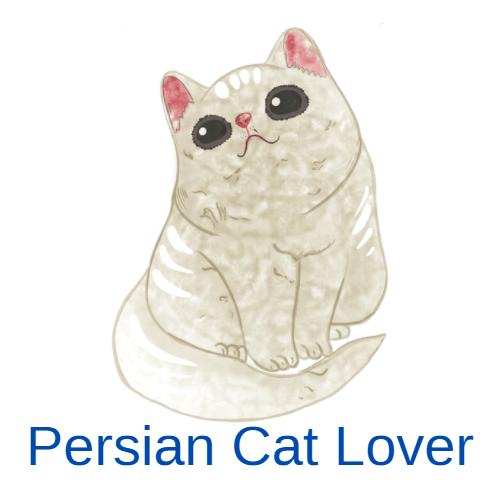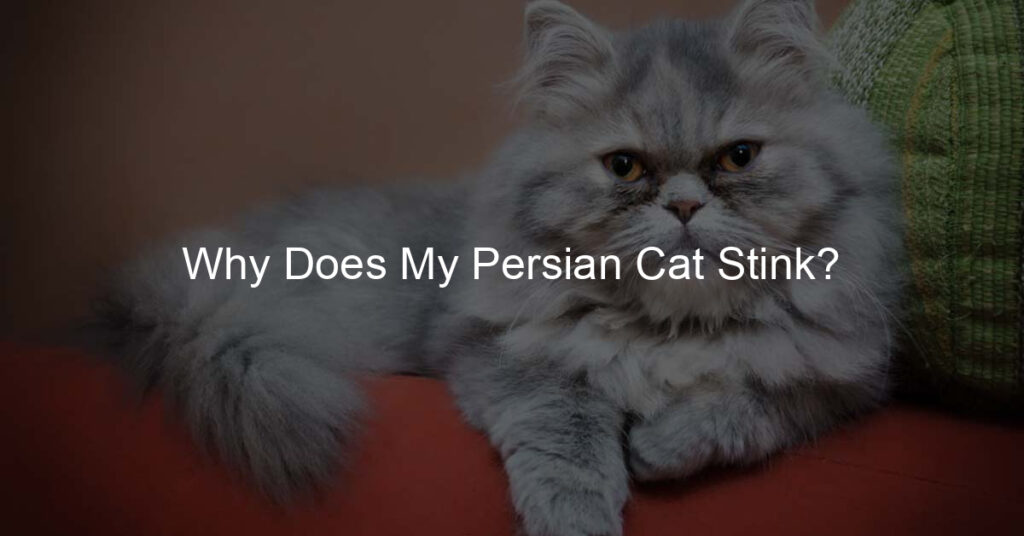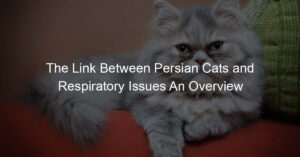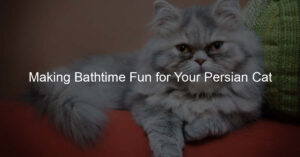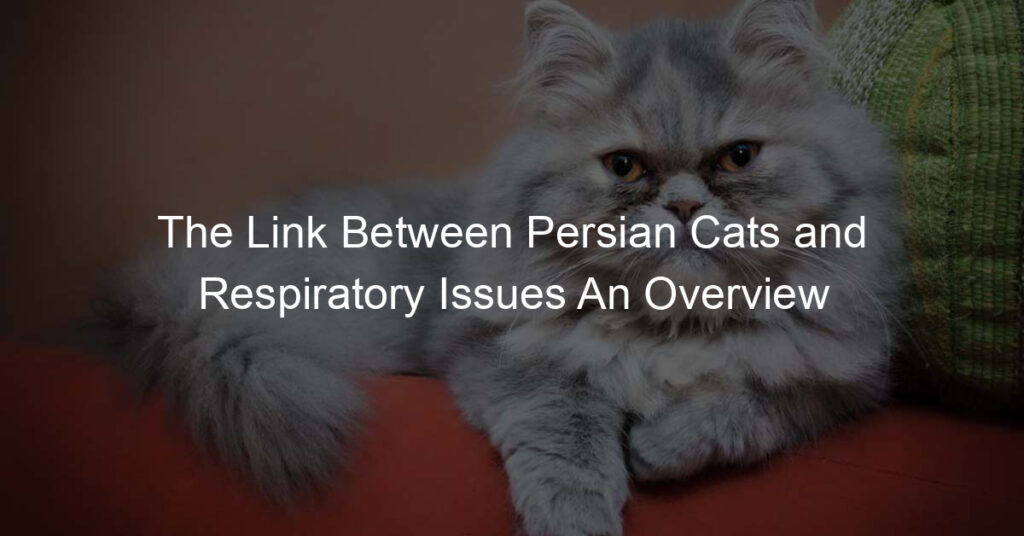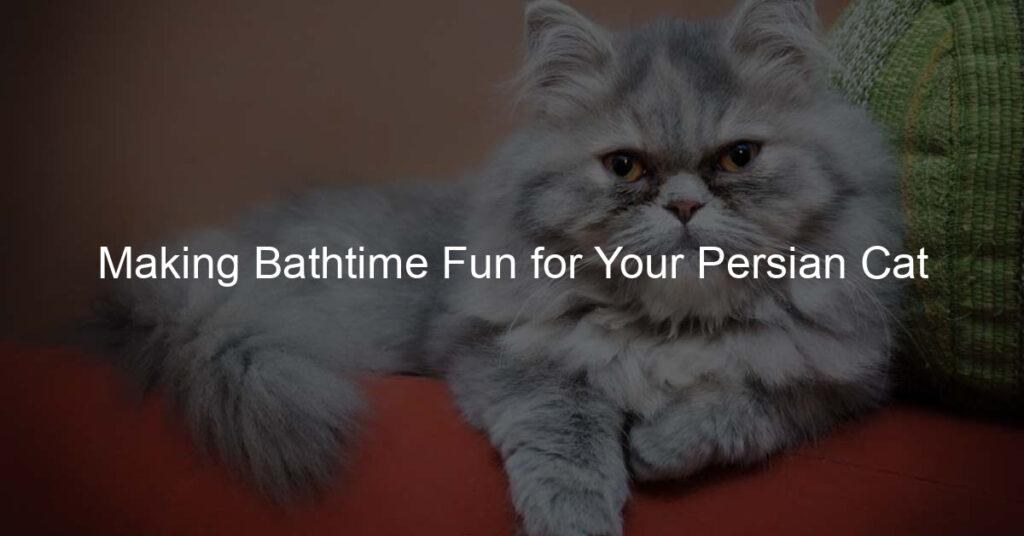It’s a valid question, and unfortunately, the answer isn’t always so pleasant. Persian cats are known for having thick, silky fur that can easily become matted if not groomed regularly.
This can trap dirt, bacteria, and other odors in their coat resulting in a nasty smell. Further, because of their flat face shape and short nose, they don’t have as much saliva to help clean their mouths which means more bacteria build up, resulting in bad breath.
Fortunately, there are ways to keep your pet smelling sweet again! Regular grooming is vital for preserving their coat clean and free from mats and odors.
Brushing them at least once a week can help de-shed the fur and remove any dirt or stinkiness that has built up.
Also, regular dental hygiene is essential to remove any plaque or bacteria that can lead to bad breath.
Finally, ensure they get plenty of exercises and a healthy diet so their skin and fur stay strong and healthy. With these simple tips, you’ll have the sweet-smelling furry friend you deserve!
It’s no fun having a stinky pet, but with a little extra effort, you can keep your Persian cat smelling fresh as ever! So take care of them, and they will take care of you with cuddles and love.
What Type of Brush Is Best for a Persian Cat?
If you have a Persian cat, you know that their fluffy coats can create an extra-special smell if not cared for properly. But what kind of brush is best for these cats, and how can it help keep them smelling fresh?
The first thing to consider when trying to reduce odors from your Persian cat’s coat is the type of brush you use.
A good rule of thumb is always to use a brush with natural bristles; plastic or metal brushes tend to move the dirt around rather than remove it, creating more stink in the long run!
A slicker brush works well for most breeds, but since Persian cats have thicker fur, they often require some extra TLC. You may want to invest in a deShedding tool to go through their fur more effectively.
In addition to brushing regularly, you may also want to look for a shampoo specifically designed for cats with longer hair. This type of product will help remove built-up dirt and oils from the coat, making it easier for the natural bristles of your brush to do their job.
It’s important to remember to rinse thoroughly and not leave any soap residue on the cat’s fur, as this can irritate their skin and cause even more odors!
Eventually, regular bathing is an effective way to reduce bad smells in Persian cats. Just make sure you’re using lukewarm water and only shampooing when necessary. Excessive bathing can strip natural oils away from the fur, leading to dry skin and stinkiness!
Why Does Brushing Help Prevent Odors From Building Up on My Pet?
When it comes to grooming your Persian cat, brushing is a must! Brushing helps remove dead hair and dirt from the coat and will help prevent odors from building up on your furry friend.
It’s also important to bathe your pet regularly, as this will help keep their skin and fur clean and fresh, reducing any unpleasant smells that may linger. Also, you can use pet-safe odor treatments or special shampoos to help fight stubborn odors caused by bacteria.
Of course, if the smell persists despite proper grooming habits being followed, then it may be time for a trip to the vet. There could be an underlying health issue that needs to be addressed, so it’s always best to get your pet checked out if the odor continues.
No one likes a smelly cat (though we LOVE smelly cats), and with proper care, you can keep your Persian coat smelling fresh and clean!
How Do I Clean the Plaque Off of My Cat’s Teeth?
Cats are known for their notoriously poor dental hygiene, so it’s no surprise that your Persian cat is likely suffering from plaque buildup. Fortunately, there are ways for you to help keep your pet’s teeth clean and free of the stinky smelly bacteria that can come from unchecked plaque.
The first step to cleaning your cat’s teeth is to brush them regularly. Then, a soft-bristled toothbrush and specially formulated toothpaste explicitly designed for cats will do the trick.
Make sure to get your kitty used to having their teeth brushed slowly over time; Be gentle and offer rewards after each brushing session. It may also be helpful to wrap a towel around your cat’s body to give yourself better control during the brushing.
If brushing your cat’s teeth is not an option, dental treats or chews are available to help maintain your pet’s oral hygiene. Look for products that have been tested and approved by the Veterinary Oral Health Council (VOHC).
These treats can help reduce plaque and tartar buildup, freshen breath, and even provide some added nutrition to your kitty’s diet.
Do Certain Types of Food Affect How Much Bacteria Builds Up in Their Mouth?
Yes, certain types of food can affect how much bacteria builds up in a Persian cat’s mouth.
Cats with poor dental hygiene are more likely to have bad breath caused by an accumulation of plaque and tartar on their teeth. A diet that is high in dry, crunchy kibble helps to scrape away plaque naturally and reduces the number of bacteria.
Wet foods may also contribute to the problem, as they often contain higher amounts of carbohydrates which can cause an increase in harmful bacteria.
Your pet’s health must feed a healthy balanced diet with plenty of fresh water and regular brushing to prevent this from happening.
Additionally, regular trips to the vet for cleanings and check-ups will help keep your kitty’s mouth healthy and odor-free.
Are There Any Other Tips or Tricks To Keep My Pet Smelling Good and Healthy?
Of course! A few other easy tips and tricks can help keep your Persian cat smelling fresh and clean.
-Brushing: Brush your pet’s fur multiple times a week to remove dirt, dead skin cells, and dander that could be causing the foul odor. If you have a long-haired Persian cat, consider getting it trimmed regularly.
-Bathing: Bathing your kitty is another great way to keep them from stinking up the place. You don’t need to bathe them every week, but if their coat starts to get greasy or smelly, bathe them with some pet shampoo for extra freshness.
-Diet: Just like humans, cats benefit from eating healthy and nutritious food to keep their coats and skin in tip-top shape. Make sure your cat eats a balanced diet with plenty of protein, fat, carbohydrates, vitamins, and minerals for optimal health.
-Cleaning Ears: Dirty ears can also cause an unpleasant odor and make your pet uncomfortable. Clean their ears regularly with some ear cleaner or cotton balls soaked in warm water to remove dirt, wax, or any other debris that may have built up over time.
By following these tips, you’ll have a happy and healthy Persian kitty who smells just as sweet as they look!
